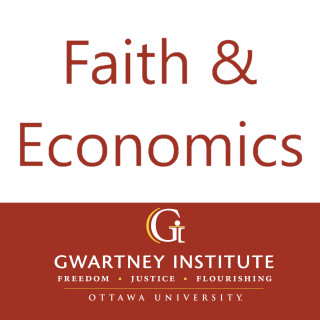

In this episode we ask: What is the social responsibility of a business? This was the question on the table during an exciting debate event hosted by the Gwartney Institute earlier this month, and a question that we often hear discussed in our culture. Join us as the Gwartney Team breaks down the different views on this pivotal topic and finds some surprising results!
Timeline:
The Shareholder Theory vs. Stakeholder Theory // 5:00
Milton Friedman "The social responsibility of a business is to
increase profits" // 6:00
Moral Concerns of Stakeholders and Stockholders // 17:00
Playing By the Rules? // 18:30
Institutional Incentives // 27:30